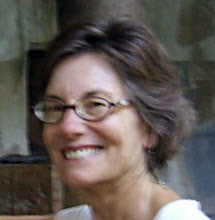I am now posting this from the US. It is very nice to be home, whatever that means. I want to catch up on this blog -- post those things I have stored in my computer and finish capturing my memories from the last days of the trip before they disappear. I was adding some Facebook friends addresses and Mustafa's friend Ahmad popped up for a chat. He was headed for his scuba diving lesson, and will scope out the great spots on the Red Sea for when we go there again. Jim is determined to dive on our next trip to Egypt.
PS. It is an urban myth that Napoleon shot off the Sphinx's nose.
30 June.
Sondos and Ahmed had joked that between my art history flash cards and our guidebooks we were the more capable guides. They saw things anew through our "strangers" eyes. We craned our necks at the cyclist balancing a 3 x 5 foot pallet of baked pita pillows (before they deflate into cello-bagged pancakes we find at Trader Joe's) as he pedaled along the traffic choked Sharia 26 July in Zamalek, and again at the entire family of four squished on a small motorbike in Luxor.
After rising in Cairo at 5am, we hid from the heat, slept and read our first afternoon in Luxor. At a still roasting 5:30 pm, we crossed the Nile to meet AbdulMawgoud, his wife Nadia, their daughter Abrar, and two of Nadia's sisters for a sunset felucca sail on the river. Google "felucca" for an image of the picturesque old style sailboat.
We had been waiting to meet AbdulMawgoud's family. We are fond of him, but had only seen him on his trips to the Bay Area. He played hard to get, making us travel all the way to Luxor to finally meet the rest of the family. He is a university professor in Egypt who lives between there and the US, where his wife and six children live and work. She and four of the kids are in Luxor for the summer. His daughter Taqwa, a junior in college, was walking in town and smiled at a bunch of tourists, mostly hijab wearing women. They were a diverse group of about six Americans, with ancestries from Bangladesh, Sri Lanka, Vietnam -- and Colorado; all traveling prior to starting two months of Arabic classes in Cairo.
Working his mobile, Abdul Mawgoud found the kids on a nearby felucca. None of us were actually sailing on the becalmed river, we and another boat were being towed on a y-shaped line by a motor skiff, and AbdulMawgoud convinced the driver to detour and straddle alongside the students' felucca so they could clamber onto ours. The skiff dropped us at Banana Island in the center of the river, and AbdulMawgoud recruited a local 8 year old guide to lead us around the cultivated area of banana trees, a common herb, fig trees and growing corn. Then he showed off the captive crocodile whom he prodded with a stick and fed one kilo of fish a day. I was on the croc's side, and unsuccessfully lobbied for his release into the Nile. It was now sundown prayer time and all, except one of the young Americans, went into a field to pray. Watching from the boat, we could see them moving, standing kneeling and sitting. They had invited us to watch them up close, but it was too hot and buggy in that field. It was a magical adventure, assembled on the fly. With no breeze, the two young men "sailing" the felucca had to row back using long poles without blades -- just nailing a disc on the end of each of those poles would have made their job a lot easier. The kids and even Nadia's adult sister took turns oscillating the inefficient oars as we rode the current back to the dock. Afterward, walking along the Corniche, we ran into the fourteen American Fulbright scholars AbdulMawgoud has been hosting for the last two weeks. Jim and I had dinner alone with Nadia and AbdulMawgoud in a favorite restaurant of theirs, and then caught the ferry back to the west bank after midnight. We had only just met Nadia, but it felt like the four of us had been friends for a long time.
Friday, July 3, 2009
Subscribe to:
Post Comments (Atom)

No comments:
Post a Comment